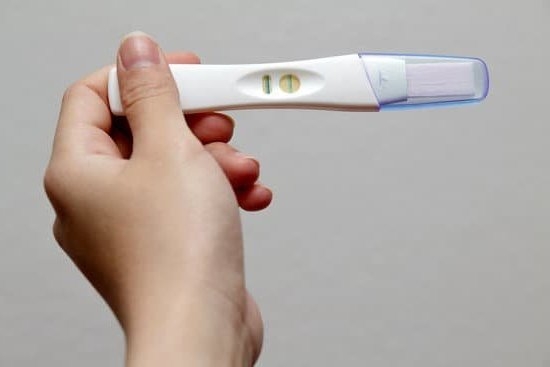Pregnancy By Trimester
: What to Expect
Many women are anxious about what to expect during their pregnancies. Knowing what to expect can help you feel more comfortable and prepared for the journey ahead. This article will provide an overview of what to expect during each trimester of pregnancy.
First Trimester
The first trimester of pregnancy is often the most difficult for many women. Morning sickness, fatigue, and other symptoms can make the early weeks of pregnancy challenging. During the first trimester, your baby is growing and developing quickly. You can expect to see your doctor for regular prenatal appointments, and you will likely be given a number of tests and screenings.
You can expect your morning sickness to peak during the first trimester. Many women find that ginger ale, crackers, and other bland foods help to ease their nausea. You should also try to get plenty of rest and drink plenty of fluids. In addition to morning sickness, you may also experience fatigue, mood swings, and changes in your appetite.
The first trimester is also a time of important development for your baby. Your baby’s heart is beating, and his or her brain is growing. Your baby is also starting to develop arms, legs, and other features. By the end of the first trimester, your baby will be about 3 inches long and will weigh about 1 ounce.
Second Trimester
The second trimester is often a time of relief for women who experience morning sickness in the first trimester. Many women find that their energy level and appetite increase during the second trimester. You can expect to see your doctor for regular prenatal appointments, and you will likely be given a number of tests and screenings.
Your baby continues to grow and develop during the second trimester. His or her organs are maturing, and the baby begins to move around. Toward the end of the second trimester, your baby will be about 12 inches long and will weigh about 2 pounds.
Third Trimester
The third trimester is often the longest and most challenging trimester for pregnant women. You can expect to see your doctor for regular prenatal appointments, and you will likely be given a number of tests and screenings.
Your baby continues to grow and develop during the third trimester. By the end of the third trimester, your baby will be about 18 to 22 inches long and will weigh about 7 pounds. You may start to feel your baby move around more during the third trimester. You should also start to prepare for labor and delivery.
Knowing what to expect during each trimester of pregnancy can help you feel more comfortable and prepared for the journey ahead.
Cold During Pregnancy First Trimester
There is no need to be alarmed if you catch a cold during your first trimester of pregnancy. In fact, it is quite common for pregnant women to get sick during their early weeks of gestation. This is because your immune system is suppressed during pregnancy, making you more susceptible to colds and other infections.
The best way to combat a cold during your first trimester is to drink plenty of fluids, get plenty of rest, and take over-the-counter cold medications, such as ibuprofen or acetaminophen, if necessary. You should also avoid contact with people who are sick and stay away from cigarette smoke, which can aggravate your cold symptoms.
If you are experiencing a high fever, chest congestion, or other serious symptoms, be sure to seek medical attention. Otherwise, most colds will resolve on their own within a week or two. Just be sure to drink plenty of fluids and get plenty of rest so that you can feel your best.
How To Ease Abdominal Pain During Pregnancy 1St Trimester
Many pregnant women experience abdominal pain during the first trimester. This pain can be caused by a number of things, including gas, constipation, and ligament pain. Fortunately, there are a number of ways to ease this pain.
If you are experiencing abdominal pain, the first thing you should do is drink plenty of fluids and eat light, healthy foods. You should also avoid eating foods that are high in fat or fiber. If the pain is severe, you may need to take over-the-counter pain medication.
You can also try to ease the pain by taking a hot bath or using a heating pad. You can also try massaging your abdomen or taking a walk. If the pain does not improve, you should consult your doctor.
Hard Stomach During Pregnancy Third Trimester
Many women experience a hard stomach during the third trimester of their pregnancy. This is a common and normal occurrence, and is caused by the baby growing and putting pressure on the stomach and other organs. While it can be uncomfortable, it is not usually a cause for concern.
There are a few things that you can do to help relieve the pressure and discomfort caused by a hard stomach during pregnancy. Try lying on your left side, which will help to take the pressure off of your stomach. You can also try taking a hot bath, which will help to relax your muscles and relieve some of the pressure.
If you are experiencing a lot of pain or discomfort due to a hard stomach during pregnancy, be sure to speak to your doctor. They may be able to suggest other ways to relieve the pressure, or may recommend that you take medication to help relieve the pain.
Stomach Pain During Pregnancy 3Rd Trimester
The third trimester of pregnancy can be a trying time, both physically and emotionally. For many women, the final months of pregnancy are accompanied by a variety of discomforts, including pain in the stomach. While stomach pain during pregnancy is not always a cause for alarm, it can be a sign that something is wrong. In this article, we will discuss the causes of stomach pain during the third trimester of pregnancy, as well as how to relieve the pain.
The third trimester of pregnancy is a time of great change for the body. The baby continues to grow, and the mother’s body begins to prepare for labor and delivery. As the body changes, various organs and tissues may become compressed, including the stomach. This compression can lead to pain in the stomach, as well as nausea, vomiting, and diarrhea.
Other causes of stomach pain during the third trimester include:
-Gastroesophageal reflux disease (GERD) – a condition in which stomach acid backs up into the esophagus
-Preeclampsia – a condition characterized by high blood pressure and swelling in the hands and feet
-Urinary tract infection – a common infection that can cause pain and burning when urinating
-Constipation – a common problem that can lead to pain and cramping in the stomach
-Hemorrhoids – swollen veins in the rectum that can cause pain and itching
-Round ligament pain – pain in the lower abdomen that is caused by the ligaments that support the uterus
-Braxton Hicks contractions – irregular contractions that can occur in the third trimester
-Placental abruption – a condition in which the placenta separates from the uterus before delivery
If you are experiencing stomach pain during the third trimester of pregnancy, it is important to consult with your doctor. Your doctor will be able to determine the cause of the pain and recommend appropriate treatment. In many cases, the pain can be relieved with simple measures, such as resting, drinking plenty of fluids, and taking over-the-counter pain medication. However, if the pain is severe or accompanied by other symptoms, such as bleeding or contractions, you may need to be hospitalized.

Welcome to my fertility blog. This is a space where I will be sharing my experiences as I navigate through the world of fertility treatments, as well as provide information and resources about fertility and pregnancy.





